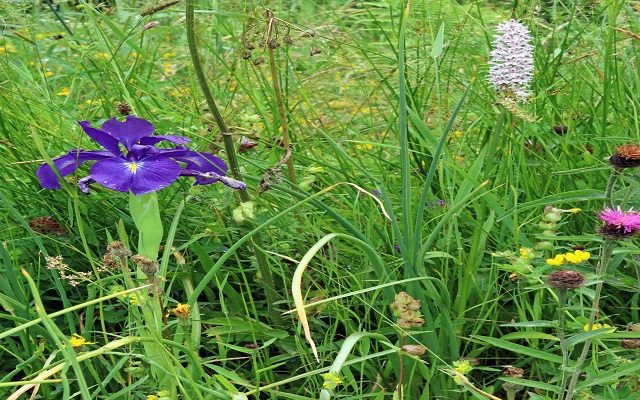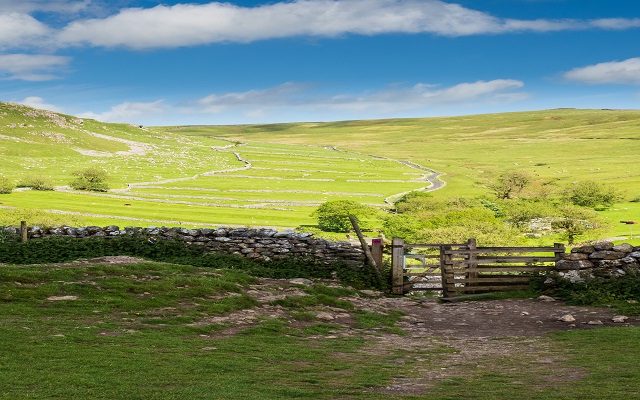Land Business Update | Week Commencing 2nd October 2023
State of Nature report highlights its worsening state but ways to support it are clear
This latest report is the most accurate study of UK nature available, using information from more than 60 research and conservation organisations. The Green Alliance summed it up as, ‘the latest numbers still have the power to shock. Almost 1,500 species now risk becoming extinct in Great Britain. This includes 43% of birds, 31% of amphibians and reptiles, and 26% of land mammals. Much loved species such as the turtle dove, water vole and European eel could vanish altogether from this country. Many plants have disappeared from places where they were once common, including more than half (54%) of flowering plants, such as heather and harebell. Invertebrate species are found, on average, in 13% fewer places now than in 1970. There have been strong declines in some insect groups with important roles in ecosystems, such as pollinators like bees and hoverflies.’ The Alliance, which is a grouping of conservation organisations, says that there are five ways to help nature recover:
- Increase funding for nature-friendly farming.
- More spaces protected for nature – in England, only 7% of land is protected and only a third of that is in good condition.
- More green jobs – with well-trained people able to manage sites properly.
- Make polluter pays the rule – this has been a principle of many policies but is not adequately monitored or enforced.
- Free, easy access to good quality nature – as it supports people’s physical and mental wellbeing.
Farming
Habitat Wales Scheme now open for applications
Details of this interim agri-environment scheme have now been published. It offers one year contracts to fill the yearlong gap between the end of existing schemes and the start of the new Welsh Sustainable Farming Scheme (SFS) in early 2025. It is available to all land managers in Wales, not just existing agreement holders, and all habitats on a holding must be entered into the agreement i.e., applicants can’t select which ones to include). There are 10 broad habitat classifications with a set of minimum management requirements for each one. The payment rates are £69/ha for ‘habitat land’ and £62/ha for ‘woodland habitat’, with other payments for common land. It is open for applications now (for six weeks) and is a competitive scheme, with the highest delivering applications being funded.
Energy
Scotland’s onshore wind sector deal
The new sector deal, which was announced on 21st September, aims to support the sector to grow to 20GW of onshore wind capacity by 2030. RenewableUK, a trade body for the sector, hailed the deal as ‘an excellent blueprint that could be replicated’ and estimates that the target could be exceeded. The deal includes:
- Halving the average time to permit an onshore wind farm, to one year for large projects when no public inquiry is required (and two years where an inquiry is needed). This will be done by streamlining processes and application forms.
- Streamlining will not be at the cost of community engagement, with developers encouraged to engage with the Government and communities ‘at the earliest possible opportunity’ to agree plans to share the economic benefits of the projects.
- The idea of wind developers investing in apprenticeships, other training opportunities and community benefit projects such as energy efficiency schemes.
- Developing at least one specialist onshore wind innovation centre by 2030.
Community Energy Fund to boost local growth and energy security
This new £10m Fund will support local communities in setting up renewable energy projects, including small-scale wind farms, solar, battery storage, rural heat networks and electric vehicle charging points. The Fund is expected to attract private investment to scale up projects. Applications will open in the early autumn.
Energy Bill amended to enable use of renewable liquid fuels if consultation is positive
The reason for the amendment is to explore alternatives to heat pumps, which some MPs claim are more costly to install and are not fit for purpose. Renewable liquid fuels, such as renewable diesel made from hydrotreated vegetable oil (or HVO), are claimed to reduce net emissions from source to end user by up to 90% and can be used in existing boilers which have been modified. Separately, research on heat pumps published in the energy research journal Joule, which used data from seven field studies in North America, Asia and Europe, found them to be 2-3 times more efficient than oil and gas heating systems at temperatures below zero. The Regulatory Assistance Project, which was a co-author of the report, said that there has been a campaign spreading false information about heat pumps. The Guardian and DeSmog recently revealed that lobbyists associated with the gas boiler sector had attempted to delay a government measure to increase the uptake of heat pumps.
Environment
Five wildlife-friendly hedge-cutting tips
The People’s Trust for Endangered Species has issued some useful hedge-cutting tips to keep lots of food available for wildlife:
- Leave hedge cutting until January at the earliest.
- Aim to cut established hedges no more than once every three years.
- Cut hedges 10cm higher and wider than the previous trim line.
- Distribute cutting across a site so resources aren’t all removed from a single location in one go.
- Cut young hedges yearly for the first five or so years after planting.
Hedgerows are important for many types of wildlife. They provide important habitat for many of our birds. Song thrushes use hedgerow trees as song posts for example, while yellowhammers nest at the hedge base. Structural diversity across the landscape is key when managing hedges for birds. Tall and wide hedges with a high density of hedgerow trees are suited to woodland species like blackbirds. Species such as linnets prefer shorter and wider hedges.
Natural flood management (NFM) programme (England)
An additional £25m is being invested in grants for NFM schemes that reduce the risk of flooding. The funding builds on a pilot programme that funded 60 projects. NFM uses techniques including planting trees and creating wetlands to slow and store water to reduce the risk of flooding. Expressions of interest must be submitted by 10th November. Projects should cover a large enough area to provide demonstrable flood risk benefits, and be delivered during 2024-2027. There are also currently around 144 NFM projects in the £5.2bn flood and coastal defence programme. Many of these use NFM in combination with civil-engineered approaches to reduce flood risk.
Forestry
Forestry and Arboriculture Training Fund (England)
An additional £1m is available to fund training courses across England. Courses can cover chainsaw operation, operating heavy machinery, planning and planting new woodland, deer management, marketing and selling timber, tree pruning and tree surveying.
Rural economy and property
Biodiversity Net Gain (BNG) policy start delayed two months – with only one month’s notice!
The government announced that there will be a delay in the introduction of BNG rules, with the legislation to bring in the rules to be laid before parliament in November. Developers in England will now be required to deliver a minimum 10% BNG from January 2024 onwards when building new housing, industrial or commercial developments. We are expecting additional guidance from the government to be published by the end of November. The guidance will also set out the roles and responsibilities of landowners, developers, and local planning authorities.
Border Target Operating Model finally published by the UK government
The Model is the rule book for inspecting imports of animal products, plants, plant products and high risk food. Imports into the UK have not been subject to the same level of checks as UK exports since Brexit, which many organisations have said is unfair. The Model is expected to be implemented in three stages, from 31st January 2024 onwards, with full safety and security declarations for EU imports coming into force from 31st October 2024. The Fresh Produce Consortium (or FPC), which represents about 700 fresh produce business, welcomed the publication of the Model, saying it takes into account their concerns over its impact on imports, will benefit consumers and industry, and reinforce UK biosecurity.






